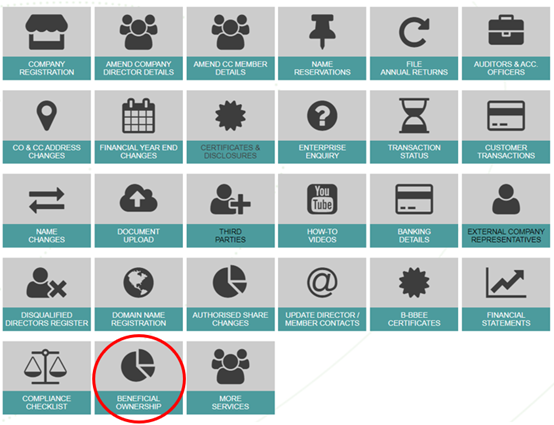This means the days when the “warm body” which sits behind a company can no longer remain off record. This has far-reaching implications for anyone who owns an asset which is either of value or has a more complex ownership structure.
The deadline announced is October 2023, which leaves little time for complex structures or where international planning is involved. Failure to update and maintain this information will result in the CIPC considering the company as non-compliant, but more importantly it weakens the company is almost every aspect of doing business including placing the banking relationships at risk.
Unpacking the Beneficial Ownership Register
Following concerns raised by the Financial Action Task Force (FATF), South African lawmakers have honed in on the concept of beneficial ownership. Per the FATF recommendations, it was indicated that South African authorities (i.e., the CIPC) must have “timely access to accurate and up-to-date Beneficial Ownership information on legal persons and arrangements”.
Further, the FATF insisted that sanctions should be applied to companies that breach their Beneficial Ownership obligations. The functionality for the declaration of Beneficial Ownership has been added to the CIPC’s e-services landing page, as is shown below:

The addition of the Beneficial Ownership Registration only adds to the long list of documents companies must now complete to comply with the CIPC. However, of the 27 listed options, the Business Ownership Registration is the probably now the most urgent and complex.
Who Does This Affect?
Companies and close corporations are now required to establish and maintain a Beneficial Ownership Register. This includes profit companies, non-profit companies, external companies, non-exempt state-owned companies, and close corporations.
Listed companies who qualify as affected companies are, however, subject to a slightly different set of requirements, but the concept of Beneficial Ownership remains the same.
“Beneficial Ownership”, in relation to a company, refers to a person who either directly or indirectly, “ultimately owns that company or exercises effective control of that company”. Some examples of Beneficial Ownership include where a person –
- Has a beneficial interest in the shares of a company;
- Exercises, or controls the exercise of, voting rights associated with shares of a company;
- Exercises, or controls the exercise of, the right to appoint or remove directors of a company;
- Is able to exercise control, including through a chain of ownership or control, of: a legal entity, body of persons, partnership, or a person acting under the provisions of a trust agreement (i.e. a trustee or beneficiary);
- Can materially influence the management of a company in any other manner.
In addition to establishing and maintaining a Beneficial Ownership Register, Beneficial Ownership information must be submitted and registered with the CIPC. This is required where a person holds more than 5 % Beneficial Ownership in an entity.
Beneficial Ownership information must be submitted to the CIPC with the next filing of a company’s annual CIPC returns but before the deadline of October 2023. Such records must be updated where any changes to Beneficial Ownership take place, within 5 days from the date of the change.
Once Beneficial Ownership information has been captured on the CIPC’s platform, it is processed accordingly. A Beneficial Ownership Confirmation Certificate is then issued, to show that the entity has updated its Beneficial Ownership with the CIPC.
The CIPC has made it abundantly clear that failing to establish and maintain a Beneficial Ownership Register may prove dire for companies and their directors alike. One may face investigations, a compliance notice, severe penalties and fines, and directors of companies may be disqualified.
No-Longer Confidential
Prior to these changes, there was no obligation for companies to declare Beneficial Ownership and shareholding information to authorities such as the CIPC. These matters were considered private and were dealt with internally by the company and its shareholders.
However, in light of these new regulations, the CIPC has clarified that they have been working closely with regulators and law enforcement agencies to develop a system to “collect Beneficial Ownership information with the objective that this information will be triangulated.” These regulators and law enforcement agencies include the South African Revenue Service, the Financial Intelligence Centre, and the Financial Sector Conduct Authority.
Currently, it is not certain if this information will be shared with other fiduciary agencies beyond those listed, or whether it will be made publicly available.
The Next Steps
Ultimately, the compliance burden rests on shareholders, directors and owners of companies to comply with the CIPC’s new requirements.
Considering the severe consequences and the long-term complexities of getting this wrong, the Tax Consulting Professional Partner network has established a network of advisors who is assisting with this new CIPC Beneficial Ownership Register, ranging from the very mundane to highly complex client requirements.

![2025-logo-[Recovered] Tax Consulting South Africa](https://www.taxconsulting.co.za/wp-content/uploads/2025/01/2025-logo-Recovered.png)





